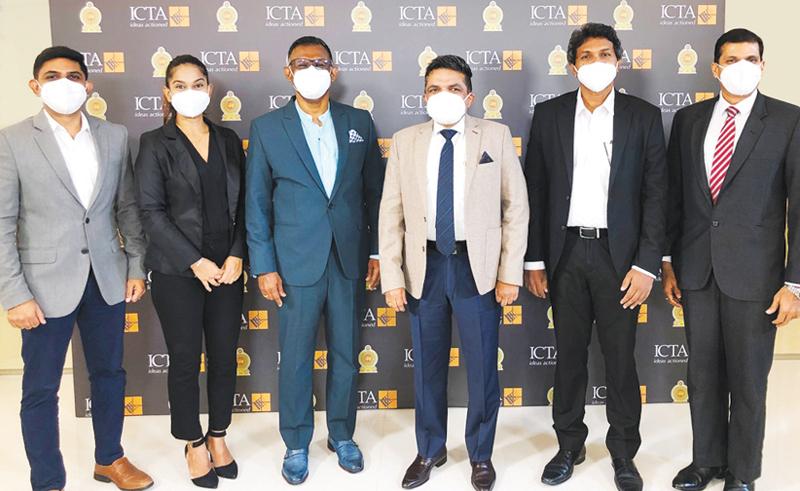
The Information and Communication Technology Agency of Sri Lanka (ICTA), the apex government body for technology startup development, in collaboration with PricewaterhouseCoopers Sri Lanka (PwC) recently launched a survey to accelerate the tech startup ecosystem -‘Towards a Startup Friendly Government’.
The comprehensive report focuses on the impediments faced by startups and enablers in Sri Lanka. The study also recommends a remedial action plan to overcome such impediments.
The survey report was launched at a press conference last week.
The survey provides a broader view of the current tech startup ecosystem, focuses on the impediments which need to be addressed and possible solutions that can be implemented together with the government authorities. The survey also presents a collaborative approach where the government authorities can work closely with the startup ecosystem for the betterment of startups.
The report complied with the guidance and support of a five-member steering committee comprising CEO, 99X, ICTA Deputy Chairman, Chairman of Steering Committee, Mano Sekaram, CEO, Calcey Technologies, Mangala Karunaratne, CEO, Lankan Angel Network, Chalinda Abeykoon, CEO, Bhasha Lanka, Dhanika Perera, Director, Cemex Software, Wellington Perera and CEO, ZMessenger, Ms. Jayomi Lokuliyana.
The significance of the study is that while showcasing a deep dive assessment of the impediments faced by the startups, it has also recommended a remedial action plan which derived after analyzing case studies of the other countries in similar nature.
The proposed remedial action plan has further been localized to support local startups and make sure that these startups receive the due support from the government entities. Director, Startup Ecosystem Development, ICTA, Sachindra Samararatne said, “Startups are critical for the economic growth of the country given the potential to spur innovation and creativity. The report gives a comprehensive set of information on the key areas that need to be focused as the government to accelerate the startups, alongside long-term solutions for the upbringing of the startup ecosystem. Going beyond this initiative, we will continue to work together with government institutions to create an environment conducive for the tech startups in Sri Lanka.”
Director, Corporate Finance and Valuation Consulting, PwC Sri Lanka, Aruna Perera said, “During the primary research phase, PwC surveyed over 110 startups on operational issues faced, growth inhibitors, funding and capital impediments and market accessibility. In addition, PwC conducted focus group discussions to understand the issues faced by the startups working in key specific sectors. Simultaneously, over 25 ecosystem stakeholders (including private incubators, educational institutes, venture capital funds, legal firms and professional bodies) were interviewed to validate startup impediments.
“The recommendations were further developed into a remedial action plan whilst considering the international case studies which brings suggestions to accelerate the startup growth in Sri Lanka. We at PwC Sri Lanka are proud to be a part of this initiative which is indeed a need in the country at present,” he said.
The report brings to light 29 impediments from 12 categories faced by startups including issues relating to Foreign Exchange, Barriers to Foreign Investors, Intellectual Property, Taxation, Immigration, R&D, Government Support for Cross Border Activities, Data Privacy and Cyber Security, Digital Payments, Debt Financing,
Telecommunication Regulations, Digitalisation of Administrative Tasks and suggests 44 plans to resolve these impediments by working together with government authorities, who are in charge of respective sectors. ICTA strives to empower tech startups via several initiatives such as StartupSL, Alternative Credit Evaluation Framework for Tech Companies, Spiralation.
ICTA expects to support the startup ecosystem development in the long run by creating a conducive environment for the tech startups to thrive.
